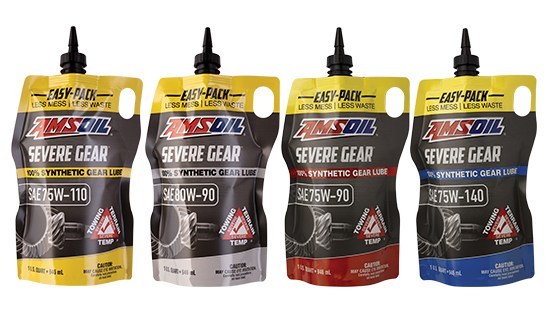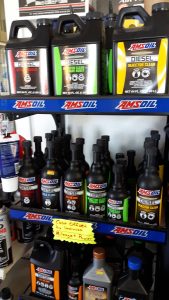The Difference Between GL-4 Manual Transmission and GL-5 Differential Gear Oil The main difference between GL-4 and GL-5 gear oils is in the level of extreme-pressure (EP) additives. It’s really very simple. They are not intended to be interchangeable and GL5 didn’t replace GL4. by Eddie Yorkman, | July 5, 2022 If you’ve ever purchased […]
You are browsing archives for
Tag: additives
Signature Series Beyond Their So Called ...
Signature Series cleans up the competition In general, the higher an oil’s TBN, the better its ability to neutralize contaminants such as combustion by-products and acidic materials. Higher TBN oils neutralize a greater amount of acidic material, which results in longer oil life and cleaner engines. TBN levels decrease as the oil remains in service. […]
Amsoil Diesel Fuel Additives Best Choice...
Our Diesel Fuel Additives Will Save Your Fuel System and Add Performance Diesel fuel additives are the most overlooked motor maintenance item next to motor oil. An essential product that must be added to every tank. Many diesel drivers mistakenly think a fuel lubricant is okay every other tank. New diesel owners are not being […]
Diesel Fuel Injector Problems: An Easy S...
Diesel Owners Need to be Fuel (Injector) Experts Mark Nyholm|May 23, 2019 8:29 AM It feels like forever ago, but it’s only been 13 years since the U.S. Environmental Protection Agency (EPA) mandated reduced sulfur content in diesel fuel, in 2006. Boy, were people angry. They knew sulfur helped protect their fuel pump and injectors […]



